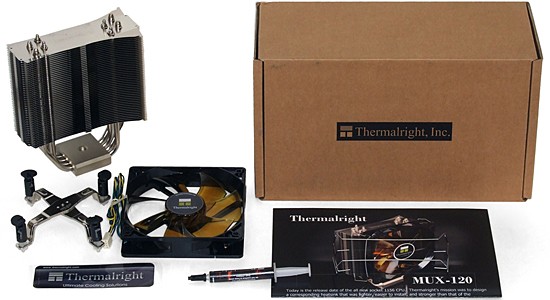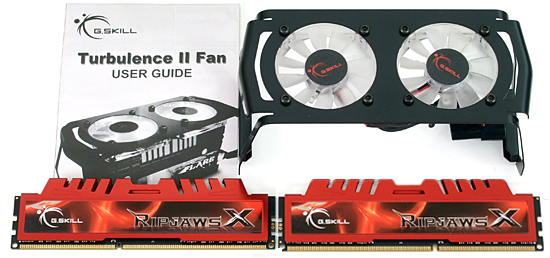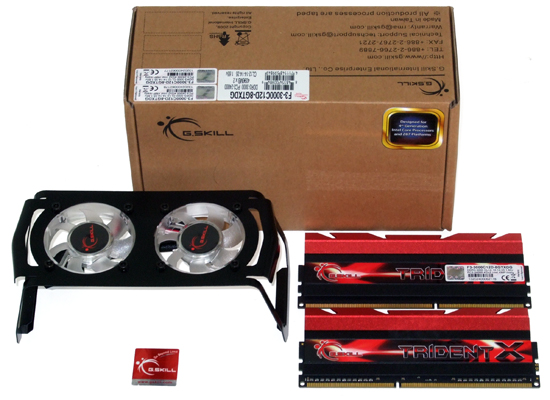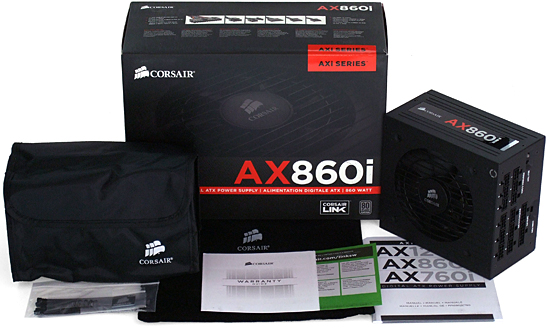Four Z87 Express Motherboards For Three- And Four-Way SLI
Formerly a very exclusive component, the PCI Express switch that makes Intel’s LGA 1150-based platforms three- and four-way SLI-capable is now available across a range of high-end motherboards. Today we compare four premium enthusiast-oriented models.
Hardware And Benchmark Configuration
Why you can trust Tom's Hardware
| Test System Configuration | |
|---|---|
| CPU | Intel Core i7-4770K (Haswell): 3.5-3.9 GHz, 8 MB Shared L3 Cache, LGA 1150 |
| CPU Cooler | Thermalright MUX-120 w/Zalman ZM-STG1 Paste |
| RAM | G.Skill F3-17600CL9D-8GBXLD (8 GB) at DDR3-1600 C9 DefaultsG.Skill F3-3000C12D-8GTXDG (8 GB) at XMP-3000 C12 Timings |
| Graphics | AMD Radeon HD 7970 3 GB: 925 MHz GPU, GDDR5-5500 |
| Hard Drive | Samsung 840 Series MZ-7PD256, 256 GB SSD |
| Sound | Integrated HD Audio |
| Network | Integrated Gigabit Networking |
| Power | Corsair AX860i: ATX12V v2.3, EPS12V, 80 PLUS Platinum |
| Software | |
| OS | Microsoft Windows 8 Professional RTM x64 |
| Graphics | AMD Catalyst 13.4 |
| Chipset | Intel INF 9.4.0.1017 |
Thermalright’s classic MUX-120 remains competitive with our recent review of high-end heat sinks, even when using its original clip-on mounting system. It’s that easy-to-mount mechanism that wins me over in motherboard round-ups, and the good performance points to a good design.
Alternatively, we can point to problems with the Core i7's heat spreader as a reason why larger coolers couldn’t give us significantly better thermal performance in that review.
G.Skill’s F3-17600CL9D-8GBXLD is the only memory kit in our lab that defaults to our DDR3-1600 CAS 9 test standard. Faster RAM always uses slower defaults, and slower RAM requires XMP to get there. The problem is that some boards automatically enable other overclocking features when XMP is enabled. Consistency rules these tests.
We replaced the slower memory with G.Skill’s DDR3-3000 kit for our overclocking stability tests.
Corsair sent its 80 PLUS Plantinum-rated AX860i for our benchmark needs, citing enhanced support of Haswell's C7 state.
| Benchmark Settings | |
|---|---|
| Adobe Creative Suite | |
| Adobe After Effects CS6 | Version 11.0.0.378 x64: Create Video which includes Three Streams, 210 Frames, Render Multiple Frames Simultaneosly |
| Adobe Photoshop CS6 | Version 13 x64: Filter 15.7 MB TIF Image: Radial Blur, Shape Blur, Median, Polar Coordinates |
| Adobe Premeire Pro CS6 | Version 6.0.0.0, 6.61 GB MXF Project to H.264 to H.264 Blu-ray, Output 1920x1080, Maximum Quality |
| Audio/Video Encoding | |
| iTunes | Version 11.0.4.4 x64: Audio CD (Terminator II SE), 53 minutes, default AAC format |
| LAME MP3 | Version 3.98.3: Audio CD "Terminator II SE", 53 min, convert WAV to MP3 audio format, Command: -b 160 --nores (160 Kb/s) |
| HandBrake CLI | Version: 0.99: Video from Canon Eos 7D (1920x1080, 25 FPS) 1 Minutes 22 Seconds Audio: PCM-S16, 48,000 Hz, Two-Channel, to Video: AVC1 Audio: AAC (High Profile) |
| TotalCode Studio 2.5 | Version: 2.5.0.10677: MPEG-2 to H.264, MainConcept H.264/AVC Codec, 28 sec HDTV 1920x1080 (MPEG-2), Audio: MPEG-2 (44.1 kHz, Two-Channel, 16-Bit, 224 Kb/s), Codec: H.264 Pro, Mode: PAL 50i (25 FPS), Profile: H.264 BD HDMV |
| Productivity | |
| ABBYY FineReader | Version 10.0.102.95: Read PDF save to Doc, Source: Political Economy (J. Broadhurst 1842) 111 Pages |
| Adobe Acrobat 11 | Version 11.0.0.379: Print PDF from 115 Page PowerPoint, 128-bit RC4 Encryption |
| Autodesk 3ds Max 2012 | Version 14.0 x64: Space Flyby Mentalray, 248 Frames, 1440x1080 |
| Autodesk 3ds Max 2013 | Version 15.0 x64: Space Flyby Mentalray, 248 Frames, 1440x1080 |
| Blender | Version: 2.67b, Cycles Engine, Syntax blender -b thg.blend -f 1, 1920x1080, 8x Anti-Aliasing, Render THG.blend frame 1 |
| Visual Studio 2010 | Version 10.0, Compile Google Chrome, Scripted |
| File Compression | |
| WinZip | Version 17.0 Pro: THG-Workload (1.3 GB) to ZIP, command line switches "-a -ez -p -r" |
| WinRAR | Version 4.2: THG-Workload (1.3 GB) to RAR, command line switches "winrar a -r -m3" |
| 7-Zip | Version 9.28: THG-Workload (1.3 GB) to .7z, command line switches "a -t7z -r -m0=LZMA2 -mx=5" |
| Synthetic Benchmarks and Settings | |
| 3DMark 11 | Version: 1.0.1.0, Benchmark Only |
| PCMark 8 | Version: 1.0.0 x64, Full Test |
| SiSoftware Sandra | Version Version 2013.01.19.11, CPU Test = CPU Arithmetic / Cryptography, Memory Test = Bandwidth Benchmark |
Current page: Hardware And Benchmark Configuration
Prev Page Z87 XPower Firmware Next Page Results: 3DMark And PCMarkGet Tom's Hardware's best news and in-depth reviews, straight to your inbox.
-
iam2thecrowe Am i missing something here? I dont see the point of reviewing 3 and 4 way sli boards and not testing 3 and 4 way sli. Seems rather pointless since any average motherboard will perform well in adobe, productivity etc benches dependent on the cpu....Reply -
Crashman This was really just about finding any board that supports Nvidia's requirements about how that third card is connected. We found some, I overclocked them, now I have enough data to pick a board for the System Builder Marathon. But that only explains why overclocking took priority!Reply
After spending two days per board on a "one week" article, I couldn't add more tests. The general benchmark set looks for unintended overclocking/underclocking, power and memory bandwidth issues, so you can see the performance difference attributable to each board's CPU and DRAM configuration differences. It runs from a .bat file, so it didn't add significantly to the article's completion time.
The PLX bridge that these all share represents the "great equalizer" when it comes to CrossFire and SLI configuration, so that portion of all three boards should be identical. I understand that things that should be the same in theory are occasionally different in practice. My apologies for not having the extra 1-day per board for additional tests. -
iam2thecrowe Reply12341788 said:They all use the same PLX bridge, so you would have seen a whole bunch of identical gaming results. The general benchmark set looks for unintended overclocking/underlocking, power and memory bandwidth issues, so you can see the actual performance difference. And there's still an overclocking section.
These boards had to be tested for general performance and stability like any other boards. The PLX controller is the equalizer when it comes to games.
I think testing 3/4 way sli would still be valid, as it doesn't always work properly, in the past there have been compatibility problems with certain gpu's/boards/firmware/controllers and certain benchmarks completely failed. -
Kraszmyl "internally-mounted external USB 2.0 port for ReadyBoost fanatics" on the asus z87.Reply
Those have nothing to do with readyboost. The internal usb ports are very common on workstations and you put CAD dongles and equivalent items in them so that you can lock them inside the case and don't have to worry about some one stealing them from the outside or them taking up an outside usb port. -
Memnarchon I would love to see Asus Maximus VI Extreme, but it seems ASUS didn't want to give a 2nd board and prefered the Z87 WS....Reply -
Traciatim where are the sli/crossfire benchmarks and comparisons with traditional non-switched setups?Reply
Hey guys, we have these awesome new setups for supreme graphics pumping power! Watch it zip files like every other board! -
duramax08 Why are they still making motherboards with PS/2 connections? Its time to move on, replace those baby's with some USB 3.0!Reply




